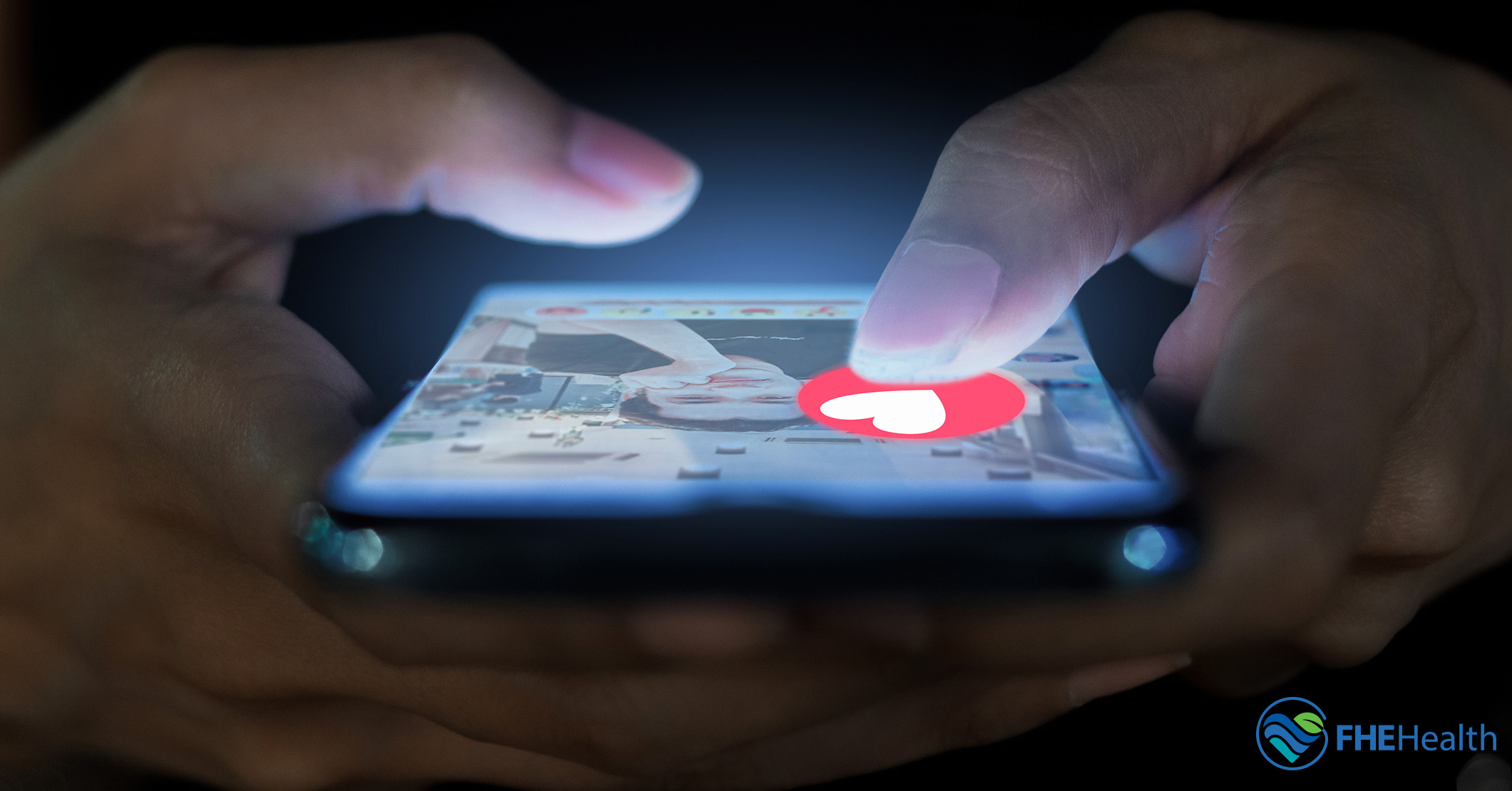
Dating can be hard on your mental health. Dating apps can be exhausting, and yet they’re becoming increasingly common, with around 30% of U.S. adults saying they’ve used a dating app or website. If you’re considering diving into the world of online dating, learn how to protect yourself from some of the darker aspects of dating apps.
Mental Health and Dating Apps: A New Frontier
Online dating puts you in touch with a huge pool of prospective partners. This leads to some people treating it like a numbers game. Some people find this enjoyable and get a little hit of dopamine when someone matches with them. However, others find that they end up traumatized by dating apps or using them in an unhealthy way.
Online Dating and Its Impact on Mental Health
When it comes to mental health, dating apps can have an impact similar to other forms of social media. However, the negative impact can be more pronounced because users are putting themselves out there to be judged as potential romantic partners, making any feelings of rejection more powerful.
People who use dating apps may find themselves developing body image issues. One survey found that those who are active on dating apps are more likely to report using unhealthy weight control measures such as purging, laxatives or diet pills.
Dating apps can also increase feelings of depression, anxiety or distress. Vulnerable individuals may be concerned about being catfished or experiencing abuse on a dating platform. Ghosting can cause a person to feel abandoned and wonder whether the issue was their fault.
Another area of concern is the way so many dating apps are designed to be addictive in nature. Big tech companies have figured out how to keep people scrolling and coming back to open their apps repeatedly. While this is profitable for those companies, it can make the experience of using a dating app both compelling and stressful. Users feel a type of decision paralysis, where the app is presenting them with an endless list of options and they’re not sure if they’re choosing “the right one.”
Setting Healthy Boundaries in the Digital Dating World
As with other forms of social media, it’s vital to set healthy boundaries when using dating apps. Limit yourself to logging in to the app at a certain time of day and have a set period of time you’ll swipe for. Take advantage of blocking tools on your phone to help you avoid logging in at other times and idly swiping.
Remember that the people you’re looking at are real human beings. Read their profiles and be selective rather than playing the numbers game when swiping. If you match with fewer people but the matches are of higher quality, you’ll hopefully find the dating process less exhausting. Should you find you’re still burned out after taking those protective steps, you can simply deactivate your profile for a while.
Setting healthy boundaries also extends to your interactions with people in the real world. Practice being direct — and be willing to break off contact if you don’t think things are going to work out. If you feel you’re not able to deal with challenging people and set healthy boundaries at this time, consider whether you’re really ready to be trying online dating.
Recognizing and Addressing Common Stressors in Online Dating
For someone who’s already struggling with mental illness, dating sites can add fuel to the fire. Some of the most common issues include:
- Rude behavior.
- Ghosting
- Sexual harassment
- Rejection
- Catfishing
- Scammers
- Burnout
Even someone who’s quite confident and outgoing may find it difficult if they swipe on a lot of people and don’t get many matches. If they’re then ghosted by some of those matches, discover others are scammers or have to deal with rude people sending unwanted pictures, the whole experience can be tiring and stressful.
Once you’re aware of the challenges you’re likely to face, you can mentally prepare yourself for them. Knowing there are fake profiles and idiots out there makes it easier to not take those profiles personally when you encounter them.
Self-Care Strategies for a Positive Online Dating Experience
Learning how to use dating apps in a healthy way can help you protect your mental health and have a more positive experience.
As previously mentioned, limit your time on the dating apps. Be selective about who you match with, and talk for a little while online before you meet anyone in real life.
Post recent pictures of yourself in a neutral location on your profile, and fill your profile out carefully so that people who are considering whether to match with you will be able to make an informed decision. If you match with someone who obviously hasn’t taken the time to read your profile, consider that a red flag, because it’s likely they’re taking a numbers-based approach to matchmaking.
Meet the people you match with in a neutral location, and try to make your first date something that can be cut short if things aren’t working. It’s easier to bail on a coffee date than to get out of a longer experience, and if things are going well, you can always suggest a meal afterward to extend the evening. Meeting up in a public place means neither party has to feel the pressure of giving up their home address if they don’t want to.
If you don’t feel ready to date people right now — or you’re worried that anxiety from online dating is causing you to engage in destructive behaviors — know that help is available. At FHE Health, we provide a variety of mental health and addiction services to help people at various stages of the recovery process. When you need someone to talk to, contact us to connect with one of our expert counselors.






